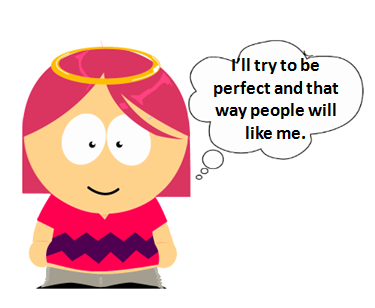I've said it before and I am sure I’ll say it again, after I
say it here: recognising that you need help when you have depression, and
trying to understand to what extent you need help, is incredibly hard.
I wake up most days and sort of mentally poke at myself: “How
do you feel today?” “What’s you mood?” “Do you feel depressed?” “Do you feel
okay?” “How do you feel about the day ahead?” “What’s your anxiety level?” As I
lie there for those first couple of minutes after waking there are usually two
different general responses to this: either I feel totally anxious and un-rested
after (another) eight hours or more of nightmares, usually connected to the
traumas I've recently experienced, or experienced in the past, or I feel okay.
For two minutes. And then after those two minutes are up, I get to know exactly
how I feel, really. My heart can start to sink; my stomach can curdle and
recoil inside me with fear or unrest; my head can feel empty or too full, or
both. My limbs feel sluggish and exhausted. My heart might start to race and I
might start to feel sick at the thought of the day ahead, even if it’s just
thinking about having a shower or eating breakfast.
If only it were that simple!
Mondays are the hardest because there are five whole days to
get through before the weekend. And it’s not even as if I like the weekend, or
find it easier to cope with. Sometimes the thought of seeing friends and
putting on makeup and a happy (or vaguely happy) (or just not crying my eyes
out and scaring everyone!) is too much to take, and the anxiety that I
experience at the thought of this is almost enough for me not to go.
But as always, with all of the above, in 99% of cases I make
myself go through with it. I know that I’m supposed to be brave and I’m
supposed to get on with things, using all of the cognitive behavioural
strategies that I've learned to support myself with. And I have my medication
too (even though the anti depressants make my legs shake so badly that even
with a sedative I can find it hard to sleep because they won’t stop moving).
Today I’m at hospital about to get help because I realised a
couple of weeks ago that I was struggling again and that issues I was facing
were escalating and bringing out the worst (or the best, if I look at this from
the perspective of my fabulous type A personality) in me. I am going to go to
groups that will help me look at my anxiety and depression and try to reinforce
all those practical strategies I know I can apply when times are tough.
The day begins with group support, where we all have to name
the emotions that we are feeling. Today I feel sad, angry – both at being here
and needing to be here - and at the external issues that have helped bring me
here again. We all speak our feelings. Usually it’s hard for some people
because depression can leave you totally numb, so that the ability to
experience any feeling seems untouchable, and incomprehensible. To be able to
feel – it’s some cloudy far away concept – it doesn't mean anything.
Sometimes hope feels just like 'tomorrow'...something that never comes.
The best thing about support group is that it’s a free
flowing conversation about our struggles, rather than a strategic
almost-lecture on how to make ourselves or keep ourselves well. The rest of the
day is much more tiring because of the things we need to learn – ways to
control our anger, anxieties, how to adopt healthier coping strategies, how to
use drama or music to articulate our difficulties.
I don’t know how I’ll feel at the end of the day, but I
suspect I’ll feel very, very tired. Being ill is hard; getting the treatment is
draining, and instead of the beautiful picture or essay or solved maths puzzle
one might take home after a hard day’s work at school, I go home with the raw
feelings unearthed by a day of delving into my past difficulties and
disappointments, my demons and tormentors alive and well and brought into my
consciousness from which ever compartment in my brain’s filing system I had
buried them away.
But I have to go to hospital. I have to get help. The
alternative is to stop living at all, or to continue with all the terrible
symptoms of depression that make me want to stop living. So I go. I’m lucky to
have the treatment and support. And I've recognised that I need help. So here I
am. I'm getting help. It's another first step.












